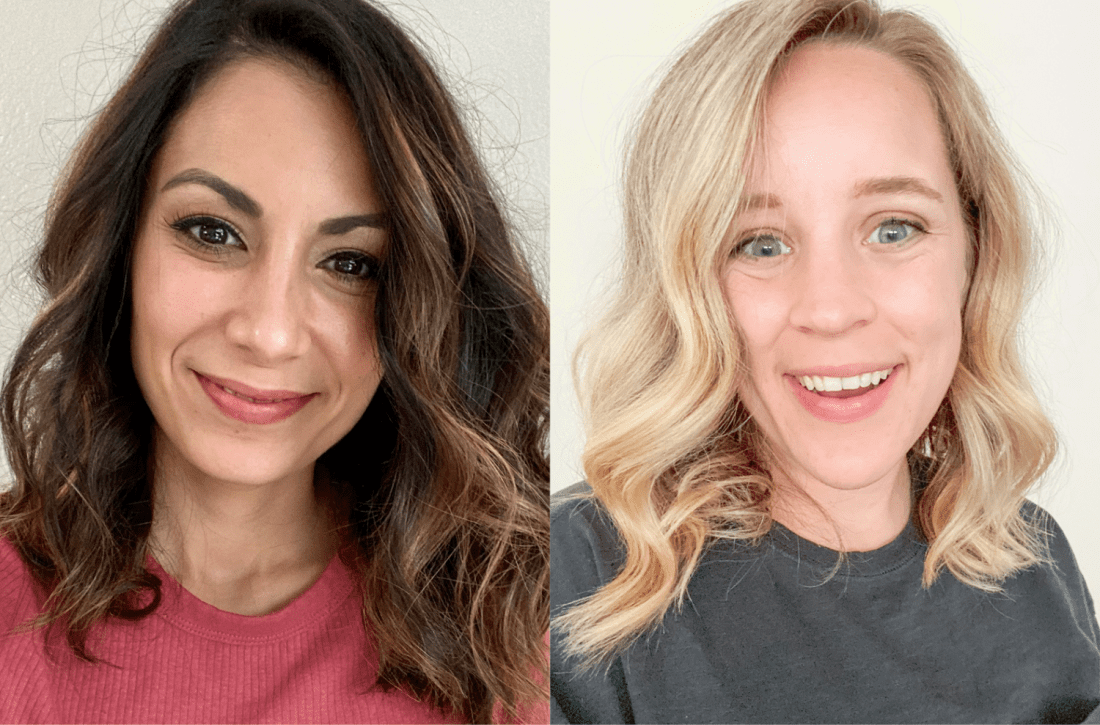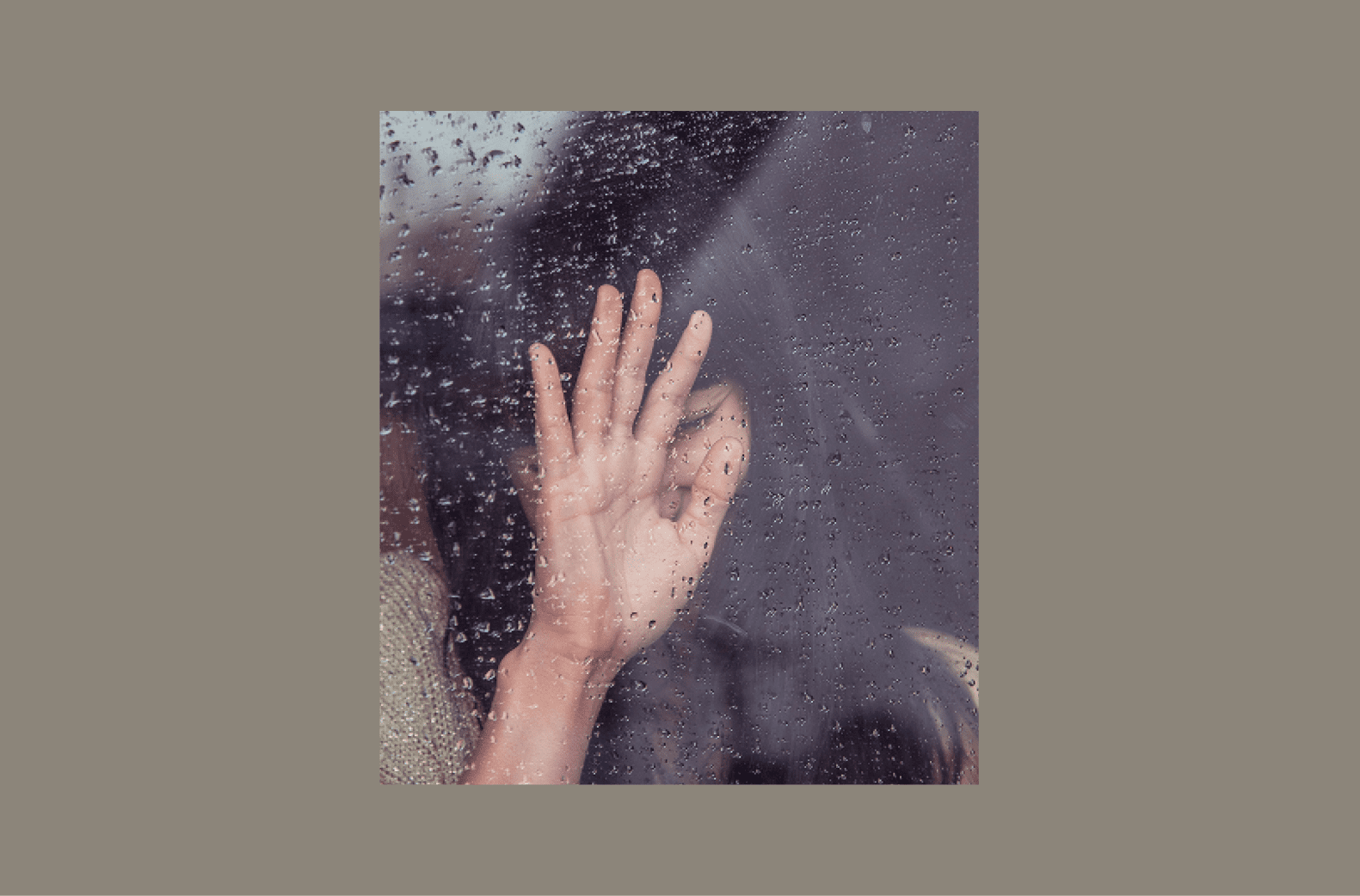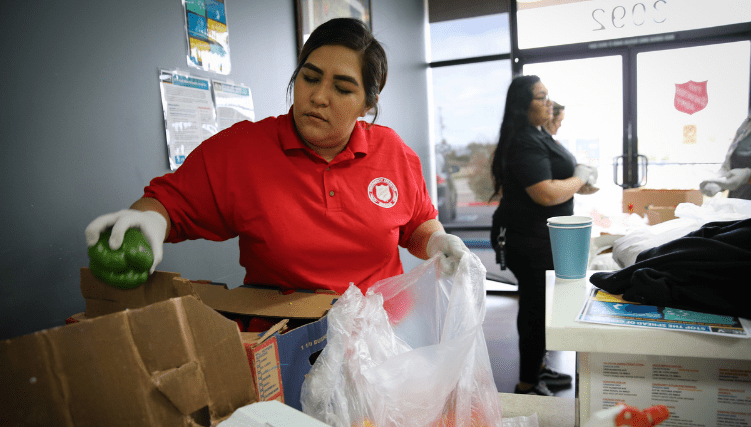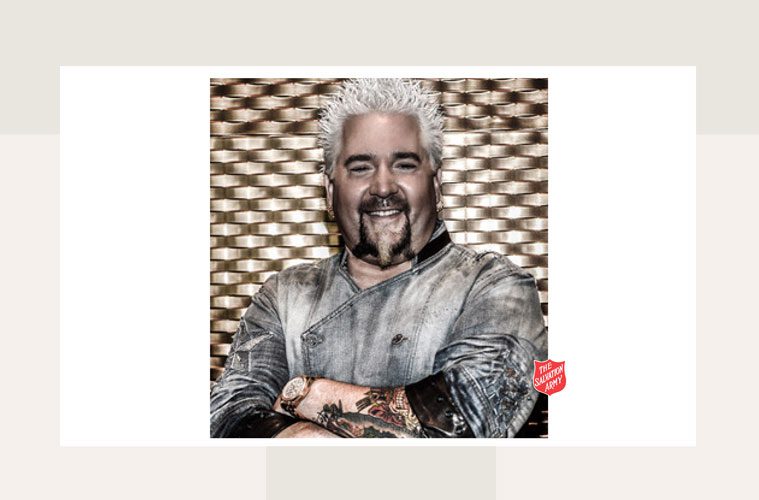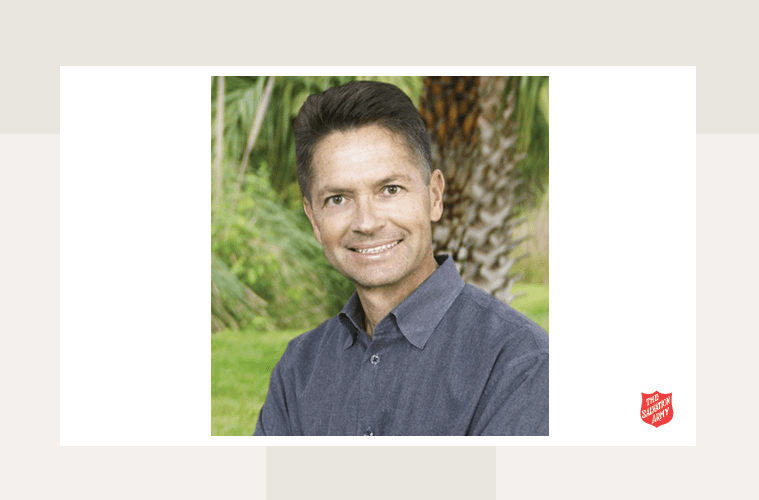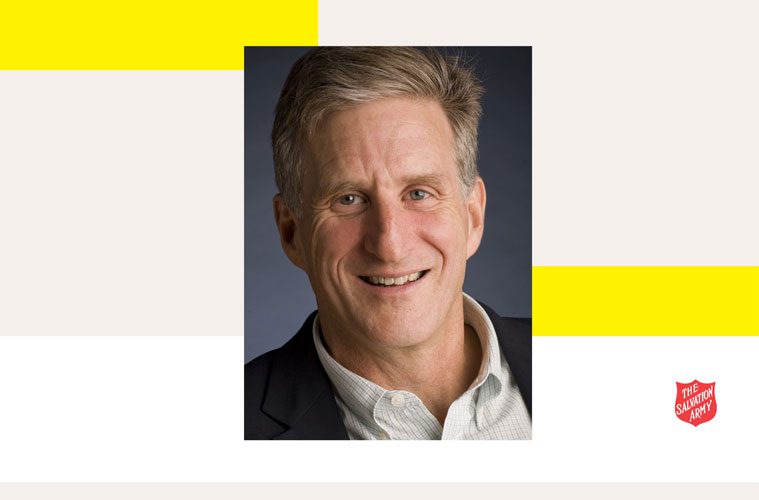As things start to go back to “normal,” is normal even a possibility now?
How do you feel about the zoo?
What about your favorite TikTok trend?
Yes, we’re covering it all and more in this episode—a freestyle conversation between your hosts featuring our burning questions for each other.
Listen and subscribe to The Commons Podcast now. Below is a transcript of the episode, edited for readability. For more information on the people and ideas in the episode, see the links at the bottom of this post.
* * *
Meagan Ruff: All right, today, we’re doing something a little bit different. This is kind of like a freestyle episode. As we plan out our seasons, we think of topics that we know will be relevant to you, our listeners, and to what’s going on right now. But we wanted to leave a little bit of space for things that come up throughout the recording time. Random questions we might have or topics that we think of while we’re interviewing other people. So some of it might be silly. Some of it might be serious. I don’t know. Where we literally…I don’t have any notes in front of me! So, this is it!
Cassandra Amezquita: Yeah, this is what our regular conversations sound like on the phone.
Meagan Ruff: Yes. So you get a glimpse of that.
Cassandra Amezquita: Yes, exactly. It’s like you’re listening to our phone calls. Anyways, I have the first question. Meagan, do you have a more recent collection or something you’re interested in collecting recently? And if so, what is it? Because I have started one.
Meagan Ruff: Okay. I don’t–not a collection of things. Our family collects Starbucks mugs and we’ve done that for a long time. I haven’t started anything new, but I have noticed that I’ve started to get everything in the same color, which is weird. So last summer, I got a new phone and the only one they had was the lavender one, whatever iPhone it is, I don’t know, 11 or something. And I was like, “Oh, I don’t like lavender that much.” So, I put a cover on it. But then this spring I saw this sweatshirt that I was like, “that’s so cute and so soft.” And it was lavender. So I bought it and then I painted my toes and I’m not even kidding you. They’re like, I can’t lift my foot up right there, ‘cause my desk. But they’re like this same purple color. And then I started looking around my house and I was like, “Oh, my planner is also purple” and my nails and it’s just been funny. So now I’m like purposely picking out things that color. ‘Cause I’m like, “Oh, I actually do really like this color.”
Cassandra Amezquita: It is such a sweet, like a spring-y color. Pastels never go bad, you can use those all the time.
Meagan Ruff: For sure. What about you? What was yours?
Cassandra Amezquita: Okay, well, I realized I actually have a sticker collection and I have intentionally been trying to add to it. It’s not only random stickers, but then as I reflect on my childhood, I actually had a sticker collection as a kid because a coworker of my mom’s worked at a hallmark store. He just gave her a big box of stickers. And I remember being so excited about it. But anyways, look at this one I have, Isn’t it cute? I put this one on my phone, but it says don’t be self-’conscious’–they’re a Mexican pastry and they are super good if you like pastries. Or if you want to stick with scones, that’s fine too.
Meagan Ruff: I do love scones. That’s going to be the second scone mentioned on this podcast in a separate episode. That’s okay. You should definitely take a picture of those stickers and link them on our show notes so people can get them because those are fun.
Cassandra Amezquita: I’ll put the website where I think they sell them on. It was at a little store in San Diego, but I’m pretty sure they have an online shop.
Meagan Ruff: Yes. And this is not a plug for our podcasts, but we do have podcasts stickers. So if you want one, send us a message and tell us what your favorite color is– now that we talked about the collections– and that’s your secret code and we’ll send you a sticker. If you send us a message and tell us your favorite color or color you’re obsessed with, then we’ll know that you listened at least four minutes into this episode and maybe there’s more to come!
Okay. I have a question for you and it’s a little bit more serious. With the pandemic and everything, a lot of people I’ve heard or seen online, we’ll talk about like, you know, “Oh, I can’t wait for things to go back to normal or for things to be normal again.” And I have some thoughts about it, but I want to know what you think. Do you think longing for the old normalcy is good or what do you think?
Cassandra Amezquita: I’ve actually thought of this before. At first, like early, maybe like a couple of months ago, I was a little bit defensive about this question because of all of the things people have gone through, you know? People have gone through so much loss and fear and illness and fear of getting sick and insecurity with their jobs, finances, everything. And when people talk about going back to normal, I’m like, “how can you just disregard this trauma that some people have gone through?” I feel like there’s no way to go back to normal. At the same time, I empathize with that idea of wanting to go back to what was normal to people and having to not wear masks or having to not be so cautious about your sanitation. Being able to just drive to work without worrying about a pandemic, like I get it. But at the same time, we are creating a new normal and whatever place of gathering we have with people that we care about. We have to acknowledge that everybody went through something unique this past year and kind of just being patient with each other and caring.
Meagan Ruff: Yeah, definitely. I think my thoughts are really similar. But also going through the pandemic, obviously alongside my family, my kids, at first I was definitely like, “Oh, I can’t wait for things to be back to normal. Like I don’t want to stay at home. I want to be able to do all the things I used to do,” but I decided like pretty early on that I wasn’t going to try to think about that or worry about that in the same way, because my kids are growing up–a year for me at 32 years old doesn’t seem like that long. But a year for Eden, I mean, that’s her whole life, you know? And so to always be worrying or longing for things to go back to a way they were before the pandemic really is my life before I even had Eden. So it seems kind of weird. I guess my thoughts are more that whatever is going on right now is my always normal, you know? Every day is different, no matter what. Every season of life is different and yeah, I don’t want to wear masks forever or not be able to go to soccer games or concerts or things like that. But at the same time, I don’t want to get stuck in a rut of always longing for what it was like before, because I feel like I’ll miss out on the good stuff happening right now. And then don’t want to discount the fact that there are people who don’t really have a lot of good going on right now or throughout the whole pandemic. I understand that that’s definitely a privilege that I have. In my life, I still have a lot of good even with, you know, the silly things that we have to do or not, not silly, just the things we have to do to go out and about. I guess that’s my thought.
Cassandra Amezquita: Yeah, that totally makes sense. Okay. Are you ready for the next one? This is totally random. And it’s a little bit controversial, but how do you feel about zoos?
Meagan Ruff: Zoos? Oh, I did not expect that.
Cassandra Amezquita: Okay. Let me give you a little back story.
Meagan Ruff: Okay.
Cassandra Amezquita: Recently, we’re on vacation and we stayed in the area, like a stay-cation. So, we decided to take the kids to the zoo. The tickets were the same price and I get it, but because of the pandemic a lot of stuff was closed down, like the playground and stuff. But honestly taking a walk throughout the whole zoo, all of the animals were just sleepy and sad. And in my mind, I kept thinking, “they don’t even want us here. They’re just like, ‘why are you guys staring at me all the time?’” It just makes me wonder, what do you think about zoos?
Meagan Ruff: Okay, well, the first thing that came to mind honestly, is that I’m kind of scared of taking my kids to the zoo. I do take them. We had a pass for the Honolulu Zoo, which was really nice. But I always think back to that video of the kid falling into the gorilla cage. Then if you ever, if you’ve ever met Magnolia, you know, that is a legit fear to have.
Cassandra Amezquita: Yes!
Meagan Ruff: So in that way, I don’t know. What you explained, like the context. I have thought about that before, like I’ve had your experience in some ways. But a lot of times too, I’ve gone where we’ve seen like the animals in there and they’re really well taken care of there. They usually seem to be very happy and healthy. And the whole concept of a zoo is kind of weird. You know, that you just take animals from all around the world and then put them in a place where people come and pay money to see them. From an educational standpoint it is cool for kids to see like, “Oh wow, a giraffe. Isn’t just like a cartoon in my book, it’s gigantic, taller than my house!” I don’t know why zoos were started. So I guess I should start there. You know, if they were started for a terrible reason.
Cassandra Amezquita: I don’t really know that part of history, but it’s true. My favorite zoo I ever went to was the Oakland Zoo and I know that they do a lot of rehabilitation for animals. So some of those animals can never go back to the wild because they’ll be killed or they just won’t survive, but they look really genuinely happy there. So I do think that they are important for our education and even for the rehabilitation of animals. But to put them in a place where they don’t have enough space to just be free and it’s more for our entertainment. It is kind of weird.
Meagan Ruff: Yeah, I think also part of what sets the stage in my mind is one of my favorite books. It’s a movie now. So, if you don’t like reading, you can watch the movie. But one of my favorite books is “The Zookeeper’s Wife” and it’s a historical fiction, I’m pretty sure it’s a true story. It’s about this family that owns a zoo in Warsaw, Poland. And during World War II and the beginning of it the woman in the story and her kid, they love the animals and they’re like members of their family.The way that they care for them, I know there are people out there that work in zoos that really do care that much about the animals. So whether that story’s true or not somebody writing it obviously cares about animals to write a story like that. I think reading it was really good and powerful. The movie was really well done too, but I won’t spoil it for you, but it gets kind of sad. But there’s also redemption in it. So whenever I think about zoos, I think about that book too.
Cassandra Amezquita: Okay. That’s, that’s good. I like how you put that. My sister has a zoology degree, so we got to go and watch her in action at the Oakland Zoo. And it was so awesome to see her feed little lemurs and it was adorable. But anyways…
Meagan Ruff: That reminds me, we took the girls out to dinner the other night and Magnolia had to go to the bathroom. So I took her in there and it was a private one, you know? It wasn’t one with stalls in it. And we were in there and she was like, “this is a bathroom for me.” And I was like, “yes.” And then she was like, “and it’s a bathroom for koalas.” And she was like, “yeah, for koalas, see mom.” And she pointed at the baby changing table and the brand was something like koala care. And I was like “that’s not what that means, but sure.”
Cassandra Amezquita: That’s adorable.
Meagan Ruff: It was really cute. So, okay. Are you ready for my next question?
Cassandra Amezquita: Yes. I’m sure it’s not as controversial. Go ahead.
Meagan Ruff: I feel like it just hits a little close to home. Now I’m nervous to ask you.
Cassandra Amezquita: Oh wait–A little context. We didn’t rehearse these questions or anything. We’re asking them on the spot. So, if you guys are like, “What are you talking about? where are you? They don’t know what they’re talking about.”
Meagan Ruff: Yes. I just wrote down some questions that I was like, “I wonder what if she thinks about this?” Okay. Here it goes. How do you advocate for friends in hard situations? Like whether it’s relationships or work related or I guess it could be ministry related. But when a friend comes to you and they’re in a really tough place and you may not be in a position to actually change what’s going on, how do you advocate for them? Or what do you do?
Cassandra Amezquita: Okay. That is a really good one. My immediate response is normally being empathetic to the situation, like hearing them out with love and compassion and just validating whatever they’re going through, their feelings and, you know? But also my not-so-Christian side is just like, “who did this? What did they do? Tell me because I won’t see it in their face and defend you” Just like put my fists up and no, just kidding! I’m a Jesus follower and I don’t do that. So, I just kind of tried to express deeply what I feel for them in that situation. Like if they’re feeling sadness, I kind of just allow myself to go there and feel with them. If they’re feeling anger, I kinda just do the same. Like I’m angry with them. And if it’s a situation where they are trying to use their voice to speak up about something, I try to be there to back them up. Maybe I’ll be next to them while they make an important phone call or kind of like practice together what it’s going to sound like.
Meagan Ruff: Oh, that’s a good one.
Cassandra Amezquita: Yeah. Just being there the way they want me to be, and not necessarily asking them, “what do you need?” Because sometimes people don’t know how to answer that when they’re in distress. I know like one time a friend was going through something like illness or one of their family members was sick. And I was just like, “I’m going to drop off a meal at your house.” So I dropped off a meal and that was it. If they eat it or not is not my business, but at least it’s there. But yeah, that’s mostly, I think how I would respond.
Meagan Ruff: As you were talking, it made me think of times where you’ve been like, “Oh, this happened”. And I’m like, “Oh, I’m going to fight this.” I get that. Aaron’s like, “why are you so mad?” And I’m like, “because!”
Cassandra Amezquita: And then they’re like, “Oh no, my wife is mad.”
Meagan Ruff: And then Aaron’s like, “okay, what do I have to do now to fix this? So that you’re also calm.”
Cassandra Amezquita: Okay. Yeah. I always feel like since I’ve known you in the situations where we’ve gone through those hard moments, you have responded exactly the way I’ve needed it. And I mean, it’s hard to find true friends like that.
Meagan Ruff: But then the bad part about that, specifically when we lived in close proximity to each other when we were wrongfully accused of doing stuff, you know, air quotes–got in trouble. Hello. We don’t get in trouble! But then we just like to pump each other up. Like, “this is wrong. We didn’t do anything. Here’s all the evidence. Here’s the text messages and the emails and the receipt from Starbucks. Like we did everything right!”
Cassandra Amezquita: Here’s a petition with a hundred signatures to show.
Meagan Ruff: Exactly.
Cassandra Amezquita: Probably best that we’re not in the same geographic location because when you have something hard, I can support you. When I have something hard, you can support me. And we don’t necessarily have anything together where we will fight,
Meagan Ruff: Oh God, no, they’re never going to put us together. They’ll actually be like, “We need to archive this episode of The Commons Podcast to remember that Lt. Ruff and Lt. Amezquita cannot be appointed near each other.
Speaking of that–My daughter’s teacher, her preschool teacher. She broke her arm or she injured her arm. It’s only funny because my daughter was like, “yeah, Ms. Taylor, she hurt her arm skateboarding.” And her teacher is a legit skater and I never told you this. So, we were in the car and Aaron was like, “you know, who else is a skater?” And I was like, “who?” And he was like, “Emma’s mommy.” And I was like, “no,” and you’re like, “yeah, she is.”
Cassandra Amezquita: The funny part is you’ve never seen me skate.
Meagan Ruff: You could be lying.
Cassandra Amezquita: Okay, well I’m definitely not lying!
Meagan Ruff: Post a video on the show notes. We have to see it!
Cassandra Amezquita: Okay. All right. I have another one.
Meagan Ruff: Okay. Okay.
Cassandra Amezquita: And this is maybe going to…you’re more biased about this because you are my son’s godmother.
Meagan Ruff: Okay. I’m ready.
Cassandra Amezquita: Okay. There was a group of people and they were really excited that my son showed up to church and a lot of little girls were playing with him. But all they had to say about the interaction was that “he’s like going to be such a player” and “he had all the ladies after him and he’s so handsome.” And you know, all those things inside of me, and I was getting fired up and frustrated. But what do you have to say about that?
Meagan Ruff: Oh my gosh. I’m already getting frustrated. First of all. Yes, he is handsome, obviously. He’s perfect. He’s the only little boy in my life really. I mean, not really. I have some other nephews that are further away, but I mean, Cullen is my godson. Okay. That whole situation just drives me crazy. When people say that about kids and toddlers like, “Oh, they’re like such a flirt” or, “Oh, he’s going to be a ladies man.” The other day we were at the store somewhere, me and Eden, and Eden’s too small so she doesn’t wear a mask because she’s a baby, you know? And she’s so smiley. So, someone was like, “Oh, she’s going to break so many hearts.” And I was like, “that’s weird. That’s really weird. Why would you say that she’s a baby? What do you know about her?” And especially when it’s strangers it kind of freaks me out. It bothers me but maybe this is controversial. I’m sure that there are people that have said this and maybe just didn’t even think about it. But I just don’t think it’s good to oversexualize children and people wouldn’t probably have a problem with saying things like, “Oh, they’re a flirt.” Isn’t oversexualizing, but that’s the start of it. And I really don’t like it. So, it is weird to me.
Cassandra Amezquita: I do think people don’t think as much into it when they say those comments.
Meagan Ruff: Yeah. Usually people aren’t like, they’re not, they don’t have bad intentions behind saying it, but I think like it’s just one of those things where it’s like, we should think a little bit more before we speak, especially when we’re speaking about someone else’s child, I think.
Cassandra Amezquita: Yeah. Also like coming from a background of, um, working with youth that have experienced, you know, like any type of abuse or, you know, personally being a survivor of childhood abuse, it’s different to hear those comments about your own children and about other children than it would be if maybe I had never gone through any of that stuff, because in reality, like it’s true. There’s this strange sexualization of children. And it even makes me uncomfortable to say, because I know people don’t mean it that way. But it’s sort of like it’s putting them in a mature aspect or in a grown-up aspect that they don’t need to be, you know? They’re innocent little beings and their mind is not flirting or their mind is not, you know, they don’t understand what that means. Um, we kind of give it those appearances, but I don’t think kids need to hear it in that way.
Meagan Ruff: Right. And I was listening to a podcast that was kind of talking about a similar topic. And they were also talking about boundaries with children and allowing your kids to set their own boundaries as far as physically. It’s really common for people to be like, “Oh, give me a hug.” And then if the kid’s like, “no,” they’re like, “Oh, you made me sad.” And talking about how that’s not really appropriate for kids. Kids should be allowed to decide if they want to hug someone, whether it’s, their mom or their grandpa or their grandma or their friends.
Anyway, they were kind of talking about that in the beginning, which I didn’t think about, honestly, before I had kids. I never considered that. But they were talking about the use of saying like, “Oh, he’s a little flirt or she’s gonna be a heartbreaker.” And now there are records of people who’ve broken the law, who are in prison, who have abused children–that use those types of statements as an excuse, like “Oh, well he’s a flirt or she’s a flirt” and they’re talking about a child. So, I think that’s where, especially in our friend circles or in our families, or even in our church, most likely nobody means any harm by it. But again, I think it’s just one of those things that maybe people should think a little bit more about the words that you use to talk about kids–especially kids that aren’t their own.
Cassandra Amezquita: Yes, exactly. And like what you mentioned about the hugging and stuff. I mean, that’s teaching our children consent early on because how can we trust that our child will become an adult that is comfortable with consent or with putting up boundaries to protect their body when we, as their parents or as the adults, are forcing them to hug people or to kiss their aunts and uncles, or even eating, like finishing everything on their plate when they’re are saying that they’re full to me. I mean, I know this is also a little controversial, but to me that’s like teaching them early on that they don’t know what’s happening to their body. Like, “you’re not actually full or you’re not actually cold when they’re telling us they are.” They’re going to be confused about that growing up.
Meagan Ruff: Yeah, for sure. And I think a lot of times, what I hear when I think about this topic or talk about this topic or read about it is people assume like, “Oh, well, if you teach your kids that they’re never going to hug their grandma, they’re never going to give their Papa a kiss” and that’s totally not true. We teach our girls that they can choose when they want to give someone a hug or not. And, you know, Magnolia is the stubborn one–she decides for herself, but the majority of the time they do want to hug us and, or snuggle us.
Magnolia lately, I posted about this on Facebook, but she’s actually done it a handful of times now. Aaron and I snuggle with them when they go to bed. So we’ll lay down next to them for about 10 minutes. And they usually fall asleep really quickly. That’s usually when I like to catch up on my text messages for the day. If I talk to the girls they’ll stay awake, so I just kind of lay there next to them. But Magnolia has started to say, “Mom, I love you, but I don’t want you to snuggle me anymore tonight.” Okay. And I never told her to say that. So the first time she said it, I was shocked. But I was like, “Okay, well I love you too.” And then, you know, I say “Can I have a good night kiss?” And she’ll give me a kiss. And then she’ll just say good night and roll over. And I’m like, wow! My night just got way easier because I don’t have to lay there with her. But at the same time, I’m proud of her for deciding, you know, “I don’t really want to snuggle tonight. I just want to go to sleep by myself and I can, and I can just ask my mom.” And that also is a skill in communicating, you know, consent and boundaries, which I think is really cool. I was super proud of her.
Cassandra Amezquita: Yeah. I mean, I’m proud of you because you’re her mom and you raised her up in a way where she feels safe enough to say that. And has the permission to say those kinds of grown up themes.
Meagan Ruff: Yeah. I know. Thank you. She’s getting so big. I can’t believe it.
Cassandra Amezquita: Well, that was definitely a topic that makes me want to talk about this for the next two hours…
Meagan Ruff: For sure. Maybe we can have an episode specifically on children’s boundaries. Yes. All right. Well, I have another question for you. It’s right on the tip of my tongue and it’s not a serious, it’s actually just kind of silly
Cassandra Amezquita: Okay. We can wrap it up after that one.
Meagan Ruff: Okay. Okay. What is your current favorite and least favorite Tik Tok or Reels trend? Like if there’s a song or like a thing that is your favorite or one that you always skip when you start to hear it.
Cassandra Amezquita: Oh gosh, I think like the, “Oh, no” one that, “Oh, no” song. That one got annoying now because I feel like I heard it every single day.
Meagan Ruff: Yes. And then if you accidentally say, “Oh no,” then it starts playing in your head. You’re like, “Oh no… Oh no…”
Cassandra Amezquita: Yes. I can’t remember what the tune is for the one that I liked, but I just find it so funny. In the video where the mom is like, “Oh, sleep, when the baby sleeps” or, you know, “eat when the baby’s down for the nap or whatever.” And it’s like, “No, that doesn’t just happen.” Like you don’t sleep when the baby’s asleep. It’s not that easy.
Meagan Ruff: I love that one, but I don’t think I have necessarily a favorite trend as of right this minute. But one of my favorite people right now to follow is, his name is Rob and he’s like a millennial guy. And he just does like a ton of old songs that are basically like from middle school and high school for me. And he’s, it’s just so ridiculous. He just makes normal videos about going to work. But instead of just being like going to work and there’s nothing else, it’s like listening to a Backstreet boy song, Like jamming on the AirPods.
Cassandra Amezquita: Oh my gosh. I have not seen that one. There’s just too much funny stuff on Instagram to look away.
Meagan Ruff: Yeah. There was the other one, the lady that I think you sent her to me and you were like, “You got to follow her. She’s hilarious.” And I was like, “Girl, I’ve been following her for a year!” She’s my favorite.
Cassandra Amezquita: She does the reenactments of the challenges. Yes. That was funny too, but okay. That’s another way that we bond together. We just send each other back to back Instagram Reels.
Meagan Ruff: Yup. It’s making me want to go on Instagram right now and look at Reels.
Cassandra Amezquita: Okay. You guys have it, any Reels that you find pretty funny, send them over because we’ll crack up with you and possibly repost them on our story.
Meagan Ruff: Yes. Send them to us @hellocommonspodcast on Instagram. We would love to see them. We will crack up with you and we’ll enjoy it for sure.
Cassandra Amezquita: Yes. So if you made it through this far, congratulations! Now you know about our silly responses and our controversial ones.
Meagan Ruff: Yeah. Let us know if you hate us doing this–if you’re like, “please stop talking, get some more structure”
Cassandra Amezquita: Back to work!
Meagan Ruff: If you have questions that you want us to ask in our next random episode, a freestyle episode, if you’re like, “Ooh, Meagan, you should ask Cassandra this” or “Cassandra, you should ask Meagan this,” message us. Or if you have a question that you want both of us to answer, send it to our shared account.
Cassandra Amezquita: We are halfway through the season. So hopefully you have heard our latest episodes and are looking forward to the ones to come. Thank you guys for listening today.
Meagan Ruff: Bye!
Thank you for listening to The Comments Podcast from The Salvation Army’s Caring Magazine, a magazine for people who care. People like you. Get on the list today to get the Do Good Digest with weekly inspiration and each new episode of The Commons Podcast sent straight to your inbox.
Additional resources:
- Follow The Commons Podcast on Instagram.
- Get inside the Caring Magazine Scripture Study Collection and find a suite of free, downloadable Bible studies to guide you through topics from New Beginnings Through Forgiveness, to Understanding our Imago Dei or Life Hacks From David.
Listen and subscribe to The Commons Podcast now.











